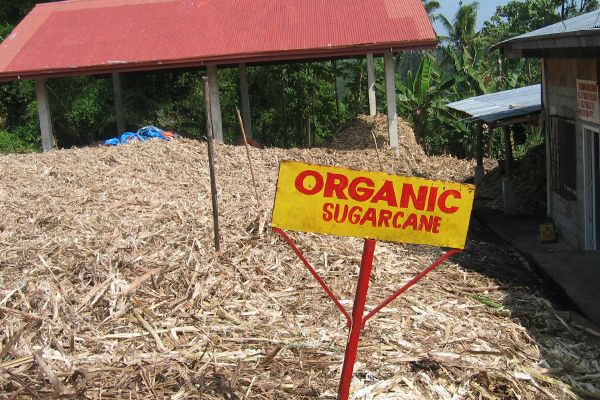Impact on the PFTC organisation
At AlterNativa3, in the current health crisis, we are closely monitoring the impact of this pandemic on the fair trade cooperatives we collaborate with in countries in the global south. AlterNativa3's Mascobado cane sugar comes from the fair trade cooperative PFTC in the Philippines. This organisation was founded with the aim of improving the position of women in Philippine society, and works to defend the interests of farming families and women living in the most disadvantaged neighbourhoods of the cities. Sugar cane is the main source of income for many Filipino families.
Like most of the world's population, the Philippines has also been extensively affected by the Covid-19 crisis. For this reason, President Rodrigo Duterte has implemented nationwide measures relevant to this pandemic situation, such as mandatory confinement, social distancing and hygiene, as well as declaring a State of Calamity for 6 months.
The country, flanked by the army and the police, has a very insecure situation due to the difficult access to basic necessities such as food, water and medicine for its more than 100 million inhabitants. This is compounded by the fact that the vast majority of the inhabitants cannot telecommute and have no access to emergency services or hospitals.
The pandemic in the Philippines
One of the great concerns of the country and PFTC is the economic impact this pandemic is having on millions of people. We must not lose sight of the fact that the vast majority of the population lives on a day-to-day income, so the current situation leaves them in a deplorable economic condition. There are an estimated 14.4 million unregulated workers on the island of Luzon, i.e. 3 out of 5 people have been left without any income whatsoever because of the pandemic. Another 11 million people are employed, but because they are doing work that is considered non-essential, they are currently without work and therefore without income. For these people, the government assistance is the equivalent of about €91. This assistance is provided on a one-off basis. It should also be noted that, on average, a Filipino family consists of 6 members.
The fish sellers used to earn about 2000 pesos a day before the confinement (about €36). Now they earn only 1000 pesos (about €18), i.e. half that. This reflects a huge drop in the demand for fish in the country. In addition, there is an oversupply. As a result, prices have fallen sharply.
In short, Covid-19 has hit the country hard. It is in a health crisis with a negative economic impact. The population criticises the government's measures. They do not take into account the millions of people without access to health care, economic or social assistance.
Society has organised itself to address the situation. For example, the Fight Covid-19 People's Alliance (FCPA) was created. Its aim is to raise awareness on how to avoid contagion. It also seeks to raise funds to help those who are suffering financially. In addition, it distributes basic foodstuffs and runs a child feeding programme.
KARAPATAN Panay
KARAPATAN Panay, an alliance of groups, individuals and organisations promoting and protecting human rights in the Philippines, issued the following statement (24 March 2020):
Currently, the burden of caring for infected patients falls on doctors. Five of them have already lost their lives after contracting Covid-19. The responsibility for feeding millions of housebound citizens is transferred to local government units. These people are deprived of any means of subsistence.
The lack of medical personnel, equipment, test kits and supplies is becoming increasingly evident. Covid-19 infected patients continue to increase. LGU's need more funds. Only then will they be able to maintain daily food aid to their communities as the crisis persists and worsens.
PFTC
- 05-05-20

